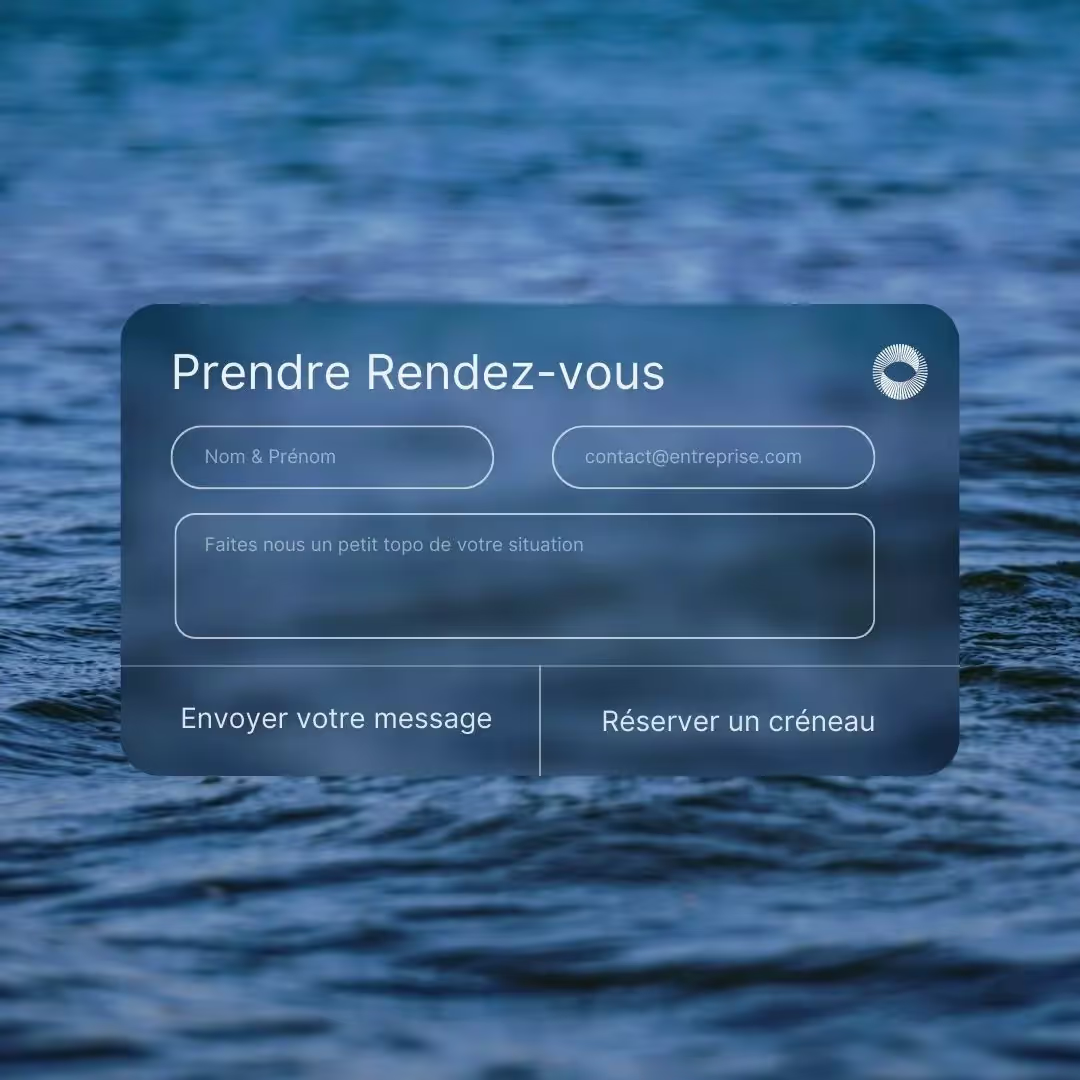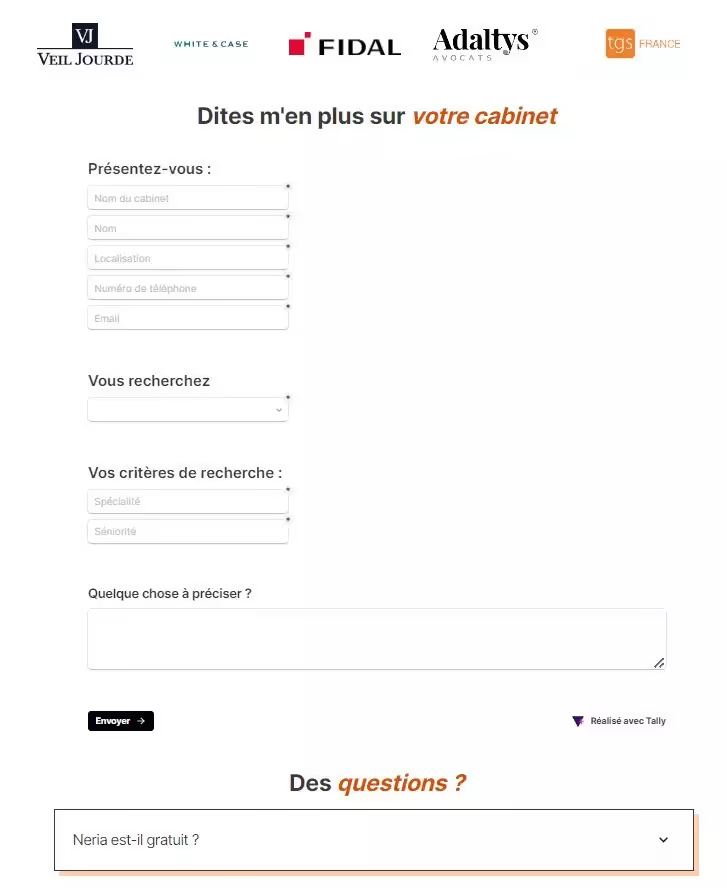
Building a contact form for your law firm
The contact form is the last step before converting a visitor into a lead! So don't neglect this step!

The contact form is the last step before converting a visitor into a lead! So don't neglect this step!
In marketing, getting contacts from someone interested in your services is the last step in your acquisition cycle. And recovering these contacts often go through a form that you share on your social networks or displayed on your website. This form is the final step. When a person fills it out, this data is the result of all the efforts you have put in place before ! You must therefore take care of this form and ensure that it is completed.
If you lack customers, your acquisition goals are high. In this case, think that the people interested in your legal services are going through a funnel. Your goal is to turn the savannah inside into a country road that's good to cross. Basically, you need to make life easier for your visitors, reduce their effort as much as possible. To do this, you need to reduce the number of questions to ask as much as possible.
You need an email: A mail box may be enough! You prefer to call your customers: a telephone box, a name and surname box are enough!
Since you are a lawyer, it is nevertheless interesting for you to qualify your requests at least. Adding a field with the possibility of explaining your customer's situation is often a relevant solution.
If you're not overwhelmed by requests, this strategy is the most effective way to make contact easier.
If the number of people filling out your forms is too large, it's time to use them as a tool to qualify your prospects.
The objective is simple: You need to select the information that determines whether or not your lead is qualified. However, you must justify the presence of your question. In general, starting the questionnaire with “This information is strictly confidential and will be used to speed up our support” is sufficient.
These questions will then make it possible to process this data and to make contact or not with the person. If you are not interested, refer him to a colleague who deals with this type of case (not responding is a risk to your reputation). If you are, suggest an appointment for him.
The tools you use can automate the processing of these questionnaires. If you receive few responses, there is no point in automating, you can take the time to respond to everyone and personalize your approach. If a lot of people are contacting you and you are wasting so much time dealing with them, you can filter these responses.
Tools like Typeform or Tally can be used to build forms very easily. They can be integrated into your website and allow you to create “logics” in your questionnaire. That is, when answering questions in a certain way, a scenario A or a scenario B takes place.
For example, you are aiming for managers who earn more than €50,000 per year: You can ask about the salary range. If they earn more than €50,000, they will receive an email to make an appointment directly in your agenda. If they earn less, they will receive an email offering the services of another colleague or simply a confirmation email saying that you will come back to them.
As another example, you offer several services within your firm, and that these services are separated into a team : You can integrate a pull-down menu of your various services in order to send the prospect to the right team. Either your secretariat will sort it more easily by sending your potential customer directly to the appropriate team, or you can automate this sorting using tools like Zapier or Make. Do not hesitate to contact me if you are interested in implementing this in your office.
Long forms can also show how serious you are and how interested you are in your approach to your prospects. A form with specific questions, asked around the problems of your prospects can help reassure them: “This lawyer is interested in his clients”. In this case, avoid questions of personal information. Ask for only what you need and focus on Solving the problem who will be able to make you save a lot of time in a discovery interview.

It is a method used a lot by recruitment agencies or to realize personality tests. The more numerous and specific the questions are, the more your customers will tell themselves that you will know how to take care of their file.
In particular, this is what we have achieved for Neria, the talent incubator for law firms. We decided to use the Tally tool because it allows prospects to directly see all questions (unlike the tunnel effect of Typeform where it is difficult to know when the questionnaire will end and can discourage your prospect).
Here, the questions serve the candidate directly as they allow Neria to refine Neria's search for him. In addition, it saves Neria a significant amount of data collection time to offer directly
In this case, it is also a good omen to introduce your questionnaire and the interest it has for your customer: Tell him A filling time or let him know if any questions are mandatory or not.
Questionnaires are not only intended for the recovery of contacts and the qualification of prospects in the legal field. They can also be used in a variety of ways to serve your goals and improve your business.
As you will have understood, questionnaires are the solution to pass an intuition into certainty.